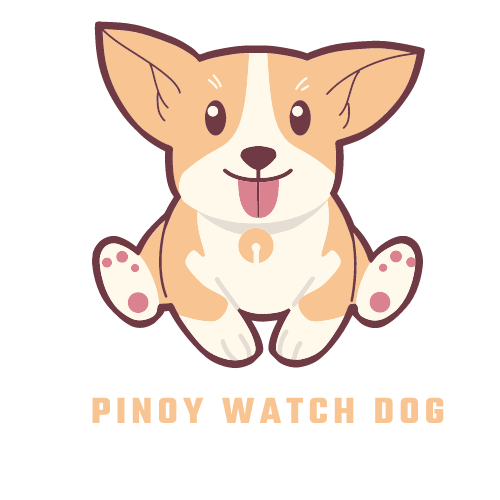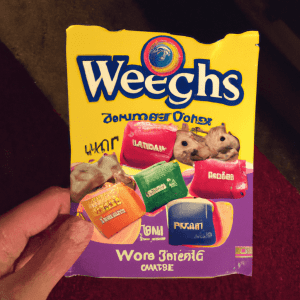Can dogs eat parmesan cheese?
Parmesan cheese is a hard, salty cheese that is a favorite among many people. But can dogs eat Parmesan cheese? The short answer is yes, but it depends on the type of Parmesan cheese and the amount your dog consumes.
Generally, it’s not recommended to feed Parmesan cheese to dogs, as it can be high in fat and sodium, and too much of either can cause health problems for dogs. In this article, we’ll look at the nutritional content of Parmesan cheese and why it may or may not be a good choice for your dog.
Is Parmesan Cheese Safe for Dogs? Exploring the Pros and Cons
As pet owners, we all want to make sure our furry friends are as healthy and happy as can be. But sometimes, it can be difficult to know what’s safe for our pooches to eat. One food that’s often left in a grey area is Parmesan cheese.
So, is Parmesan cheese safe for dogs? Let’s take a look at the pros and cons. Pros In moderation, Parmesan cheese can be a healthy addition to a dog’s diet. It’s a good source of calcium, zinc, and protein, which are all important for a pup’s health.
Plus, it’s low in fat, so it can be a great treat for dogs that are watching their weight. Lastly, it’s a tasty snack that can even help with training, as many dogs are willing to work for a bit of cheese. Cons On the other hand, Parmesan cheese is high in sodium, which can be bad for your dog’s health in high amounts.
Plus, it’s a source of lactose, which can be difficult for some dogs to digest. Lastly, too much of it can lead to weight gain, so if your pup is already a bit on the chunky side, it’s best to keep the cheese treats to a minimum.
So, all in all, is Parmesan cheese safe for dogs? As long as it’s given in moderation and your dog doesn’t have any allergies or sensitivities, it can be a healthy, tasty treat. Just remember to always check with your vet before giving your pup anything new, just to make sure it’s the right choice for them.
What Are the Nutritional Benefits of Feeding Parmesan Cheese to Dogs?
Parmesan cheese is a great snack for dogs. Not only is it delicious, but it also has some great nutritional benefits. First, Parmesan cheese is a great source of protein. Protein is essential for a dog’s diet, as it helps build and maintain muscles.
Plus, it helps keep your pup feeling full and satisfied. Second, Parmesan cheese is rich in essential fatty acids. These fatty acids are essential for a dog’s coat and skin health. They help keep your pup’s fur looking glossy and healthy.
Third, Parmesan cheese is packed with calcium. This mineral is essential for strong bones and teeth. It also helps keep your pup’s joints healthy. Finally, Parmesan cheese is also an excellent source of vitamins A and B, which are important for your pup’s immune system.
Vitamin A helps keep your pup’s eyes healthy, and Vitamin B helps keep your pup’s metabolism in check. So, if you’re looking for a tasty snack for your pup, consider feeding them some Parmesan cheese. Not only will your pup love it, but it also has some great nutritional benefits.
How to Introduce Parmesan Cheese to a Dog’s Diet
If you’re looking for a tasty way to add some variety to your pup’s diet, why not try introducing them to the deliciousness of Parmesan cheese? Not only is Parmesan cheese packed with flavor and protein, but it also contains beneficial vitamins and minerals that can help support your pup’s health. Here’s how to introduce Parmesan cheese to your pup’s diet:
- Start small. As with any new food, it’s best to start with small amounts of Parmesan cheese to ensure your pup doesn’t experience any digestive discomfort.
- Make sure it’s fresh. Make sure to buy fresh Parmesan cheese and store it properly. If it’s been sitting out, it’s best to throw it out and start with a new block.
- Grate it. Parmesan cheese can be a bit hard for pups to chew, so try grating it into small pieces to make it easier for them.
- Mix it in. Once you’ve grated the Parmesan cheese, try mixing it into their regular food. A little bit goes a long way, so start with just a few spoonfuls and see how your pup reacts.
- Monitor their reaction. As with any new food, monitor your pup’s reaction carefully. If they seem to be having any digestive issues, it’s best to discontinue feeding them
Parmesan cheese and consult a vet. By following these steps, you can safely introduce Parmesan cheese to your pup’s diet and give them a delicious and nutritious treat. Bon appétit!
Creative Recipes for Dog Treats with Parmesan Cheese
- Parmesan Pups: Take a few sheets of plain puff pastry and roll them out on a lightly floured surface. Cut into small circles and use a fork to press down the edges. Top each pastry with a teaspoon of grated parmesan cheese, then bake in the oven at 350F for 15 minutes. Let the treats cool before giving them to your pup.
- Parmesan Dog Biscuits: Combine 1 cup of all-purpose flour, ½ cup of grated parmesan cheese, 1 teaspoon of garlic powder, and 1 teaspoon of dried parsley flakes in a medium bowl. In a separate bowl, mix together ½ cup of beef broth, 2 tablespoons of olive oil, and 1 egg until blended. Slowly pour the wet ingredients into the dry ingredients and mix until it forms a dough. Roll out the dough on a lightly floured surface, then use a biscuit cutter to make small biscuit shapes. Place on a lined baking sheet and bake in the oven at 350F for 20 minutes. Let cool before giving it to your pup.
- Parmesan Puppy Popcorn: Start by popping ½ cup of popcorn kernels in a pot on the stove. Once popped, pour the popcorn into a bowl and add 2 tablespoons of melted butter and 1 tablespoon of grated parmesan cheese. Mix it all together and let the cheese melt into the popcorn. Give your pup a handful and store the rest in an airtight container.
- Parmesan Cheese Chews: Cut 1-inch strips of a block of parmesan cheese. Place the strips on a lined baking sheet and bake at 400F for 10 minutes. Let cool before giving to your pup.
- Parmesan and Peanut Butter Treats: Mix together 1 cup of creamy peanut butter, 1 cup of grated parmesan cheese, and 1 egg in a medium bowl. Roll the dough out on a lightly floured surface and use a cookie cutter to make small shapes. Place the shapes on a lined baking sheet and bake in the oven at 350F for 15 minutes. Let the treats cool before giving them to your pup.
The Dangers of Feeding Too Much Parmesan Cheese to Dogs
If you’ve ever been tempted to share a few pieces of parmesan cheese with your dog, you should know that there are some serious risks involved. While parmesan cheese can be an occasional tasty treat for your pup, it’s important to understand the potential dangers before you give it to them.
Parmesan cheese is a type of hard cheese that is high in fat, sodium, and calories. In small amounts, the fat content is not an issue, but it can lead to pancreatitis and other digestive issues if it’s eaten in large quantities.
Additionally, the high sodium content can lead to dehydration, electrolyte imbalances, and other serious health problems. Parmesan cheese also contains a lot of lactose, which some dogs are unable to digest properly.
If your dog has difficulty digesting lactose, it could lead to an upset stomach, vomiting, and diarrhea. Finally, parmesan cheese can be a choking hazard for dogs. The small pieces can easily become lodged in your pup’s throat or airway, leading to a potentially life-threatening situation.
So while it may be tempting to share a few pieces of parmesan cheese with your pup, it’s important to understand the potential risks it can pose. If you do decide to feed your dog parmesan cheese, make sure it’s only in small quantities. It’s also a good idea to check with your vet first to make sure it’s safe for your pup.
In conclusion, dogs can eat parmesan cheese, but it should be given in moderation. Too much parmesan cheese can cause digestive issues in dogs, so it’s important to only give small amounts as a treat. Additionally, it should always be given in its plain form, without any other ingredients that could be harmful to your pet.




